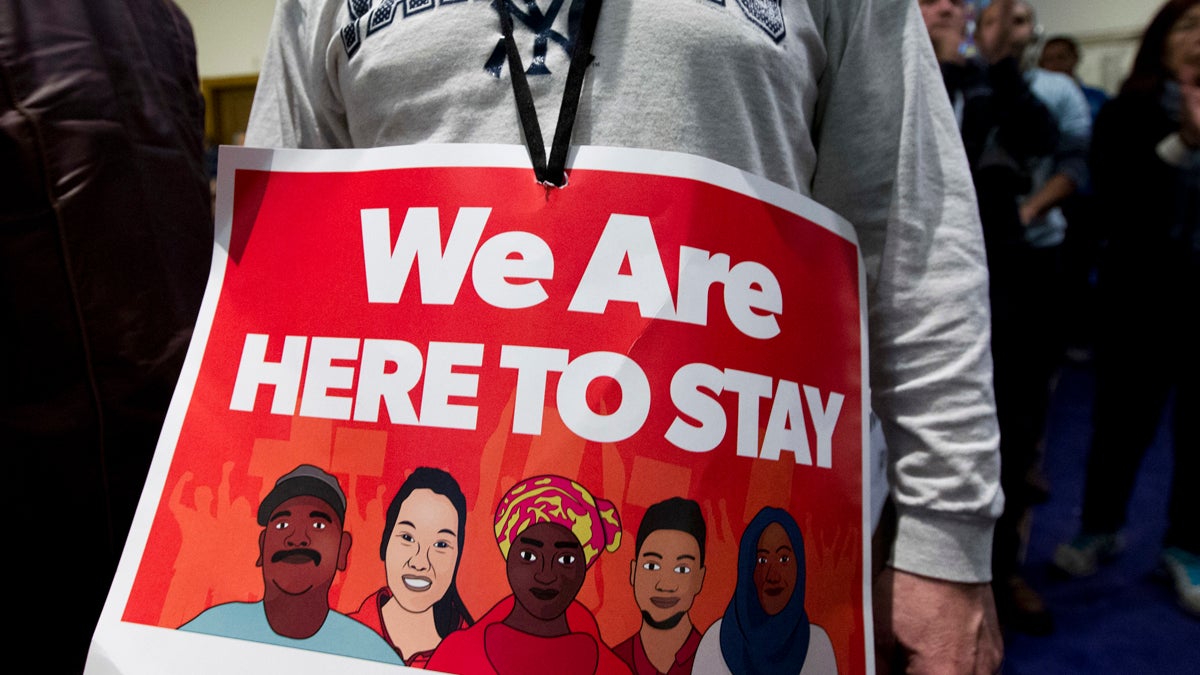Area ‘dreamers’ hail Trump change of heart, worry about parents in danger of deportation
Listen 1:39
The Trump administration intends to continue the deferred action for childhood arrivals program that protects unauthorized immigrants who came to the U.S. as children. (AP file photo)
After the Trump administration’s decision to continue the deferred action for childhood arrivals program intended to protect unauthorized immigrants who came to the U.S. as children, some of the 30,000 people it shields in the region are reacting with caution.
“It gives me a little bit of relief because, at least it’s in writing. So he can’t just change his opinion like in the flip of seconds,” said Adrian, a legal assistant in the Philadelphia area who has benefited as one of DACA’s proclaimed “dreamers.” He asked that only his first name be used.
While Adrian was relieved to hear the DACA program isn’t going anywhere, he is frustrated that the parents of dreamers are still at risk of being deported.
“I don’t think it’s morally right for the president to differentiate us and them,” he said. “We’re all immigrants here. And we’re all hard working.”
Daisy Romero is another dreamer who is worried about what will happen to immigrant families, especially her own. Her parents are unauthorized and live in Texas with her siblings. She graduated from the University of Pennsylvania last month and remembers worrying about deportation during her midterm exams.
“I recall going through finals, going through midterms, when the Austin raids were happening in Texas and feeling so much fear and anxiety,” she said. “I cried. I didn’t know what to do. I had to talk to my parents about the fact that there was the possibility of deportation happening in our city.”
Romero is glad President Trump reversed his campaign promise to deport dreamers. But she said her family is still worried.
“We’re happy that DACA is still continuing but the problem, the issue of this broken immigration system, is still very present in our lives,” she said.
In September, Texas’ SB4 Immigration Enforcement Law will be in effect, increasing the chances that Romero’s parents and other immigrants will be asked to show their papers.
Romero said she and her family have been engaging in tough conversations about who would care for her 11-year-old brother if her parents were deported. For example, she will get her name on bank accounts to access family savings.
Now that Romero has graduated, she’s heading home to Texas for the summer. Afterwards, she hopes to find work as an advocate for changing immigration policy.
Maria Sotomayor, an activist with the Pennsylvania Immigration and Citizenship Coalition, said she’s seen an increase in the number of young people applying for DACA since Trump assumed office. Many recipients are currently in high school or college, and Sotomayor also is concerned about the lack of protections for the dreamers’ parents.
“Having their family deported, financially speaking, would be a huge barrier in the way of continuing with their education,” she said. “But also just having a family broken apart because of deportation will cause tremendous trauma.”
The DACA program affects 5,889 young people in Pennsylvania; 1,444 in Delaware; and 22,024 in New Jersey, according to the latest federal statistics.
WHYY is your source for fact-based, in-depth journalism and information. As a nonprofit organization, we rely on financial support from readers like you. Please give today.





